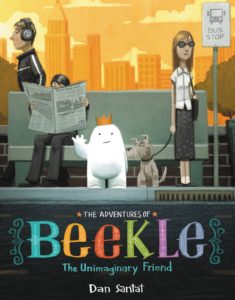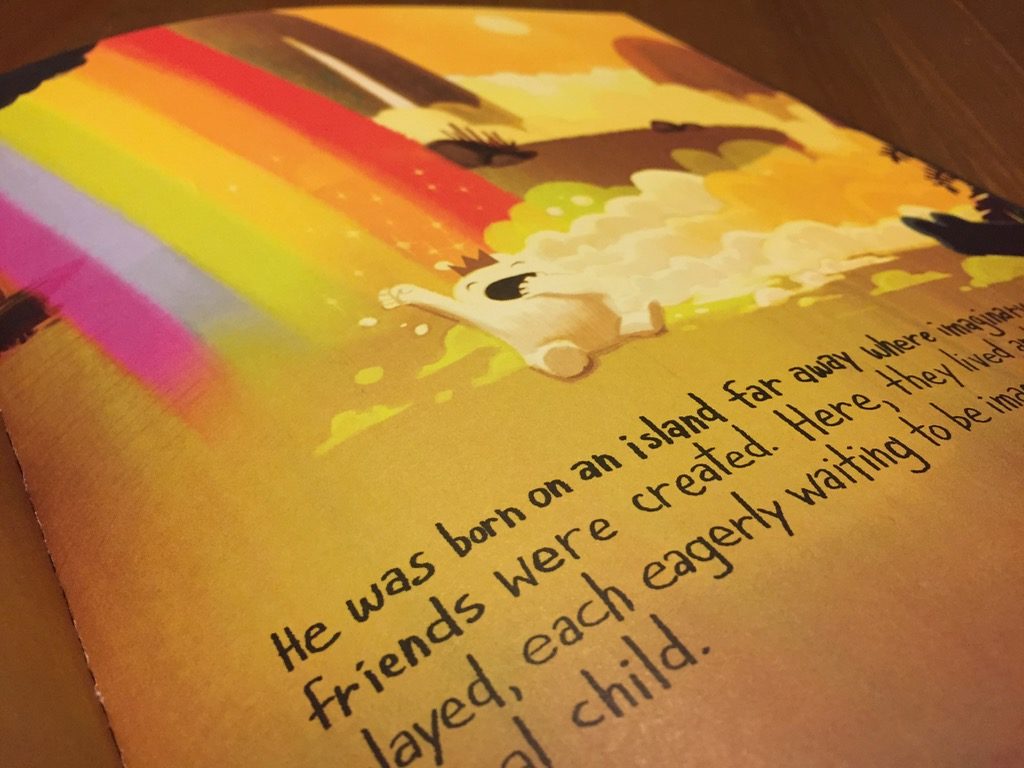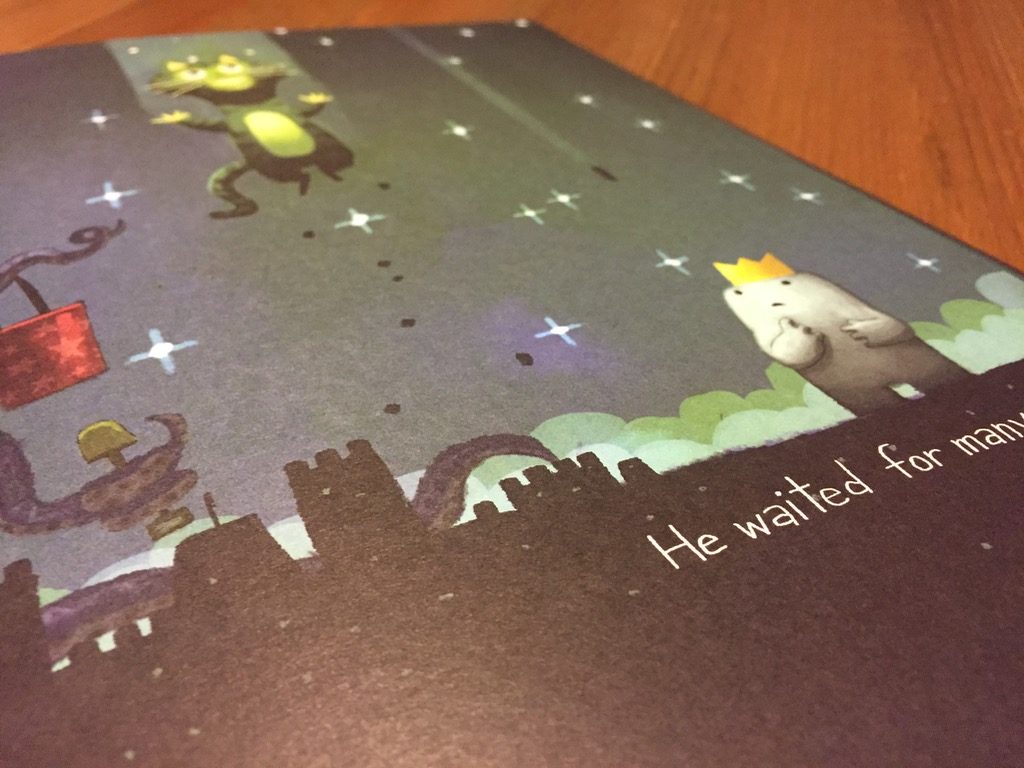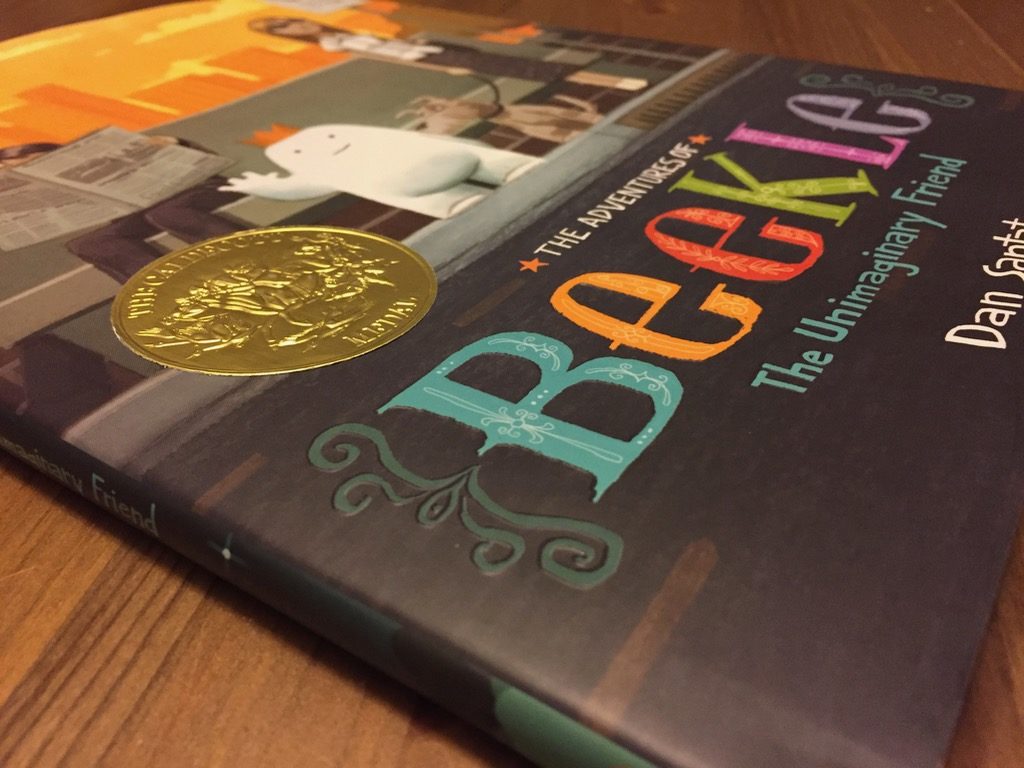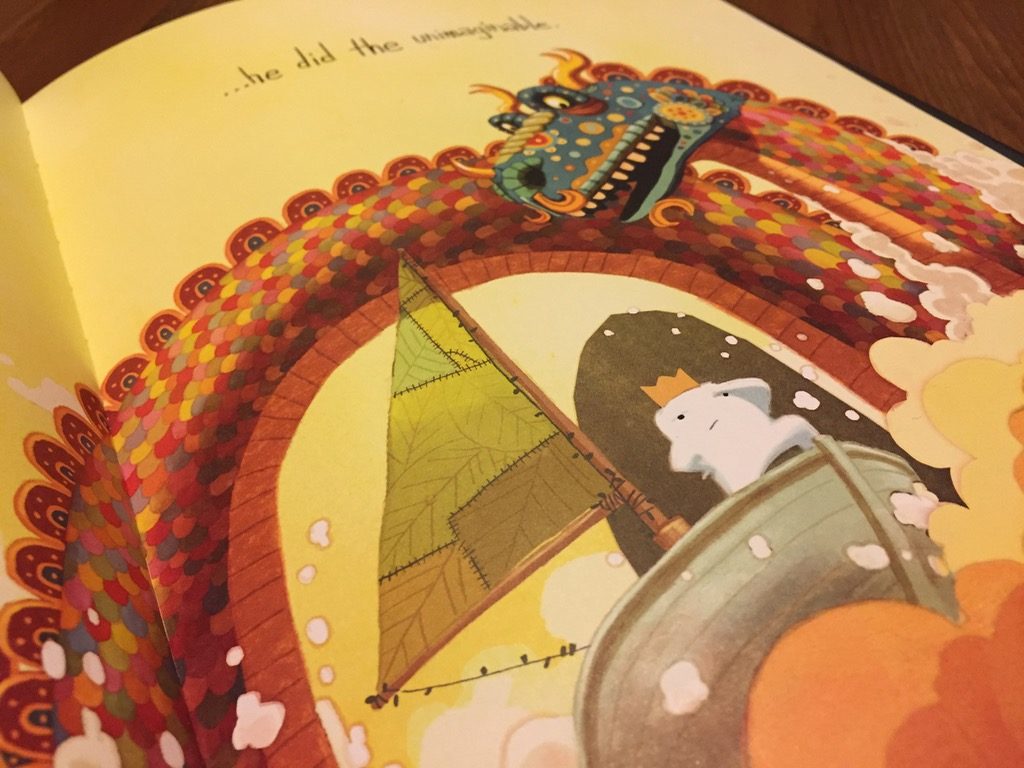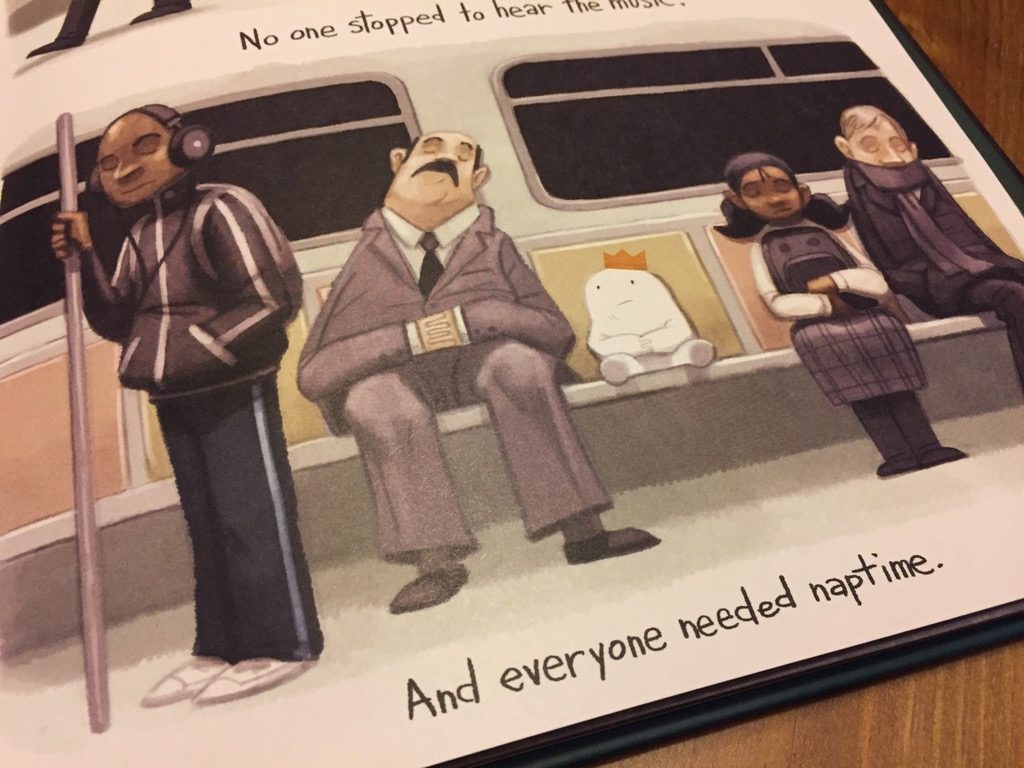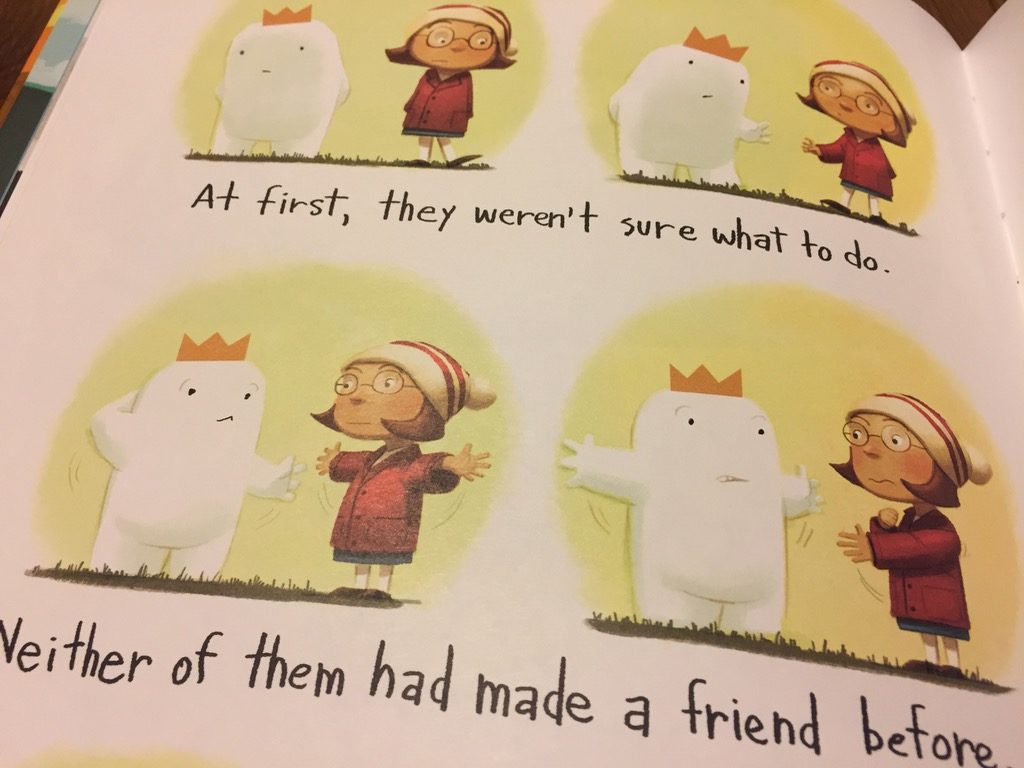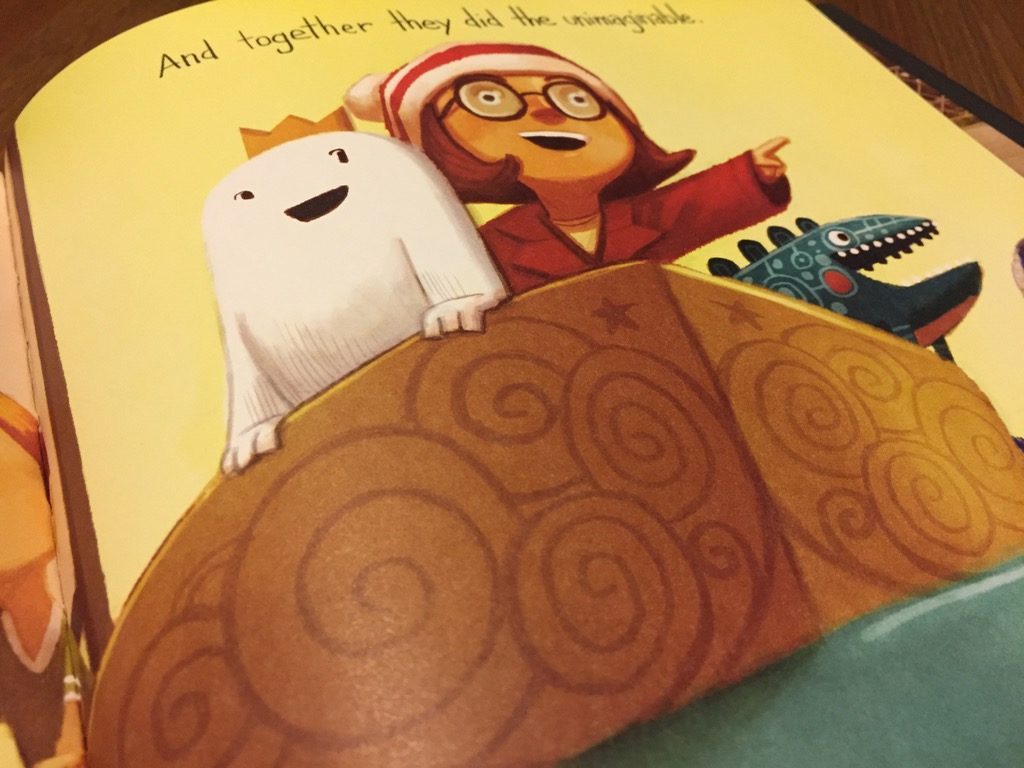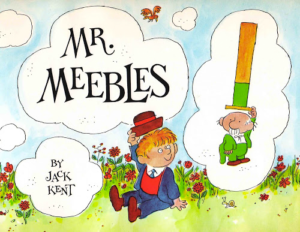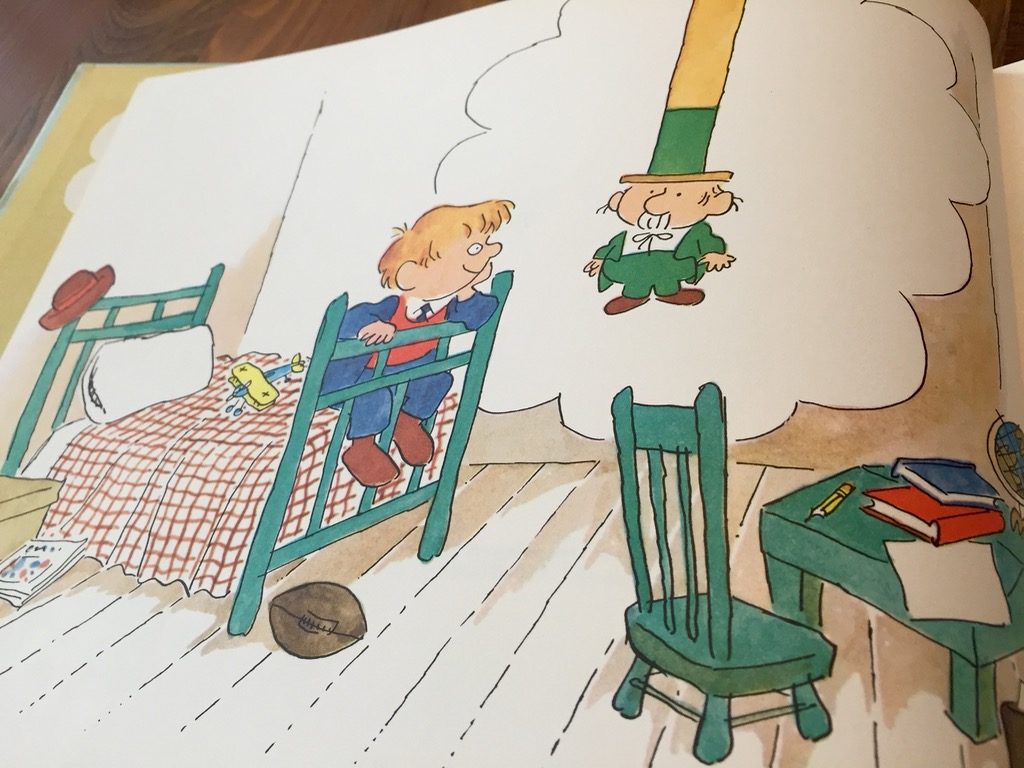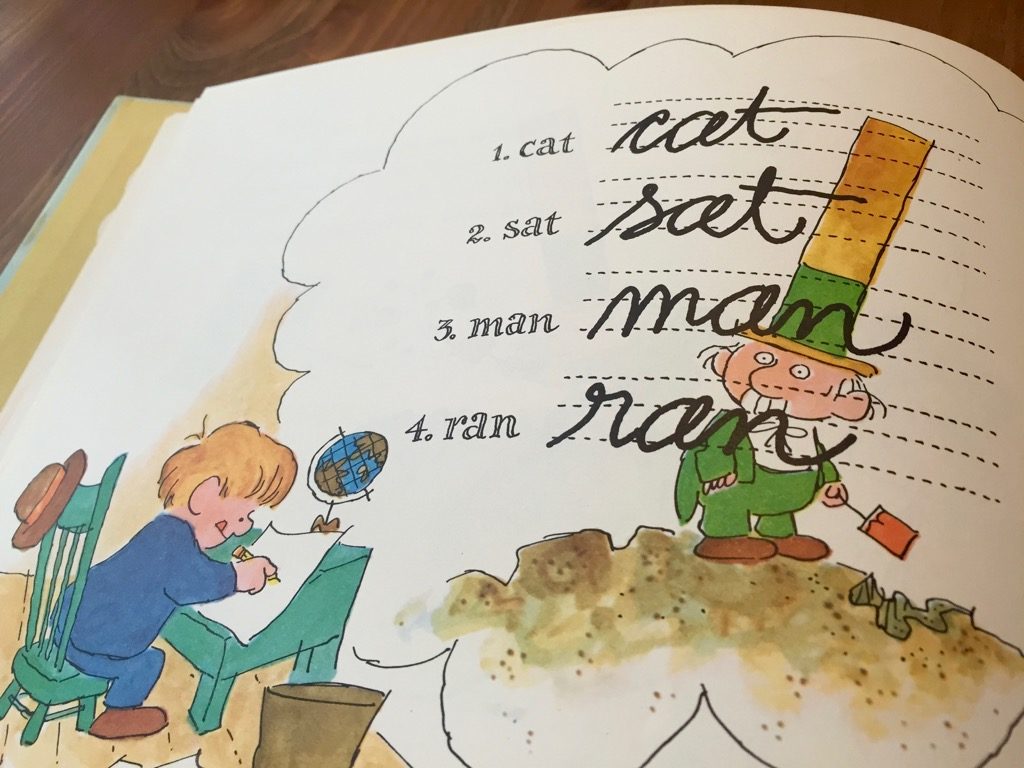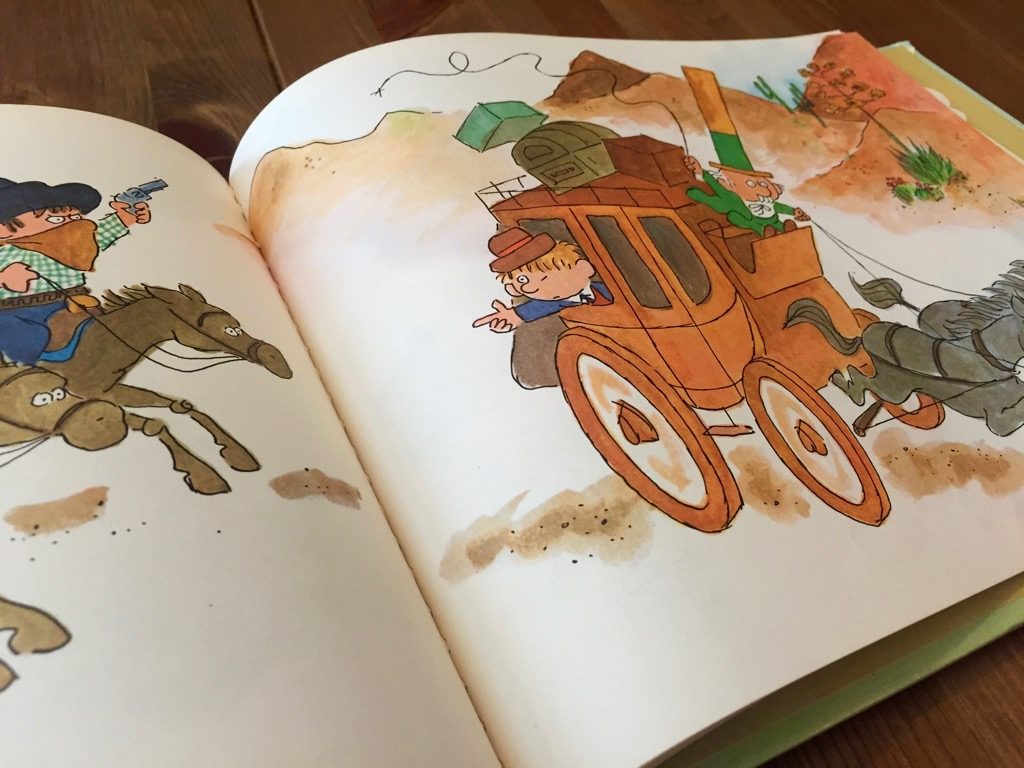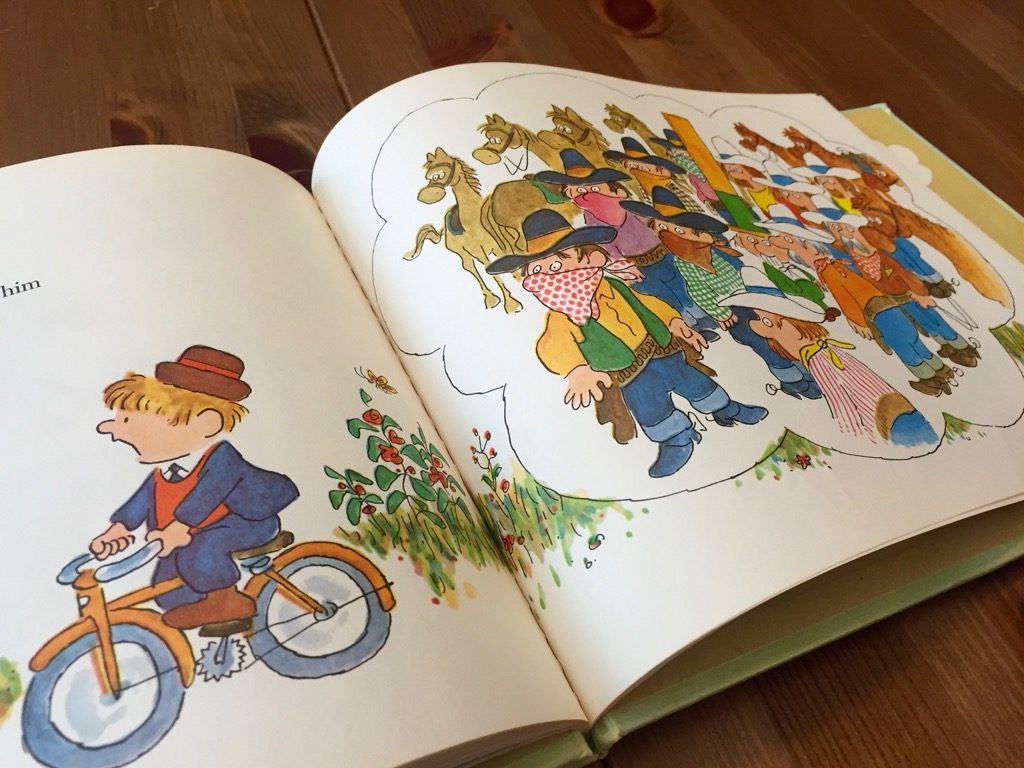A beautifully illustrated exploration of courage, perseverance, and eternal friendship.
“Whosoever is delighted in solitude,” quipped Francis Bacon, “is either a wild beast or a god.” It’s an observation that speaks to the fact that our deep, universal desire for companionship and connection can feel overwhelming, especially when we’re lonely. We feel slighted when others ignore our overtures of friendship, but if we persevere and continue reaching out to others, we may eventually be rewarded with the ultimate gift of lifelong friendship.
This is the challenge facing Beekle, the main character in The Adventures of Beekle: The Unimaginary Friend (public library), a children’s book by Dan Santat about an imaginary friend who is overlooked by children again and again. In the story, imaginary friends are born on an island where they wait to be imagined by children. Once imagined, they’re magically transported to the real world to join their new human friends.
Unfortunately, nobody imagines Beekle. He eventually takes matters into his own hands: he courageously starts looking for a friend himself. It’s an incredibly beautiful journey with a touching ending.
He was born on an island far away where imaginary friends were created. Here, they lived and played, each eagerly waiting to be imagined by a real child.
Every night he stood under the stars, hoping for his turn to be picked by a child and given a special name. He waited for many nights. But his turn never came.
Beekle decides to do “the unimaginable” and leave the island in search of his friend. He builds a boat and sails across the sea to “the real world,” which is portrayed in the book as a dark, dreary place. The juxtaposition between the real world and the children’s world is striking and, for adult readers who inhabit “the real world,” maybe a little too realistic and depressing.
The real world is strange. Beekle eventually finds a playground full of children, but he still can’t find his friend. Finally, after climbing to the top of a tree, he meets the girl who eventually becomes his friend. She calls him “Beekle,” and the two of them start having adventures together.
At first, they weren’t sure what to do. Neither of them had made a friend before. But… after a little while they realized they were perfect together.
Beekle and Alice had many new adventures. They shared their snacks. They told funny jokes.
The world began to feel a little less strange.
And together they did the unimaginable.
In an interview, Santat explained where the name “Beekle” came from, and how he came up with the idea for the story.
The name ‘Beekle’ was actually my oldest son’s first word for ‘bicycle.’ My wife thought it was a cute name for a book character and so I kept it in the back of my mind for years. When I finally found the time to write the story I had this idea about an imaginary friend who was already born on an island where imaginary friends were born but had to wait to be imagined. I always thought it was interesting to explore the thoughts of an imaginary friend waiting to meet their friend because, when you look at the whole situation, you realize that they don’t have a choice in the matter. They’re a utility to serve the purpose of a child’s needs.
Later in the interview, Santat says that he believes the story is a metaphor for the birth of his son.
To me, the story is a metaphor about the birth of my son. There’s the initial anxiety of being a first-time father realizing that there is this inevitable destiny of meeting this new person but knowing you’ll love them unconditionally without having ever met. Then the imagination becomes a reality when you finally hold your child in your arms for the first time, and that’s when your imaginary friend gets his name, Beekle.
Winner of the prestigious Caldecott Medal, The Adventures of Beekle: The Unimaginary Friend is destined to become a timeless classic. Complement with Rude Cakes, a hilarious children’s book that uses humor to talk about bad behavior, then revisit Mr. Meebles, Jack Kent’s story about an imaginary friend whose biggest worry is being forgotten.

